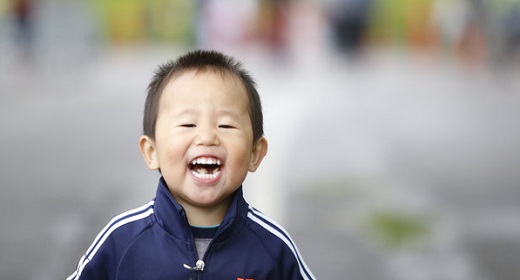‘by Yukari Mitsuhashi : Ikigai’ is the Japanese word for finding what fulfils you…

In a world where financial or material success often stands as the baseline for success, someone like Ken Idehara may seem an anomaly. His small, independent shoe shop, König der Meister, sits in the busy, colorful Tokyo district of Shibuya. In big cities like Tokyo, shoe repair shops can be found at many major railway stations, but for jobs requiring more skill and time, customers turn to experts at shops like König der Meister.
Idehara founded the shop 10 years ago after realizing that he wanted to work with shoes, specifically on bringing them back to life. Customers bring in shoes that they often have a special attachment to. Just talking them through the mending process and the cost can take Idehara up to an hour.
While shoe repairing may not be the most lucrative business, he has chosen his path and has stayed committed to it. For Idehara, using his hands and dealing with people directly is what makes his work fulfilling. “When a customer with a poker face can’t stop themselves from smiling after seeing the finished shoes in front of them, it brings me so much joy and satisfaction,” he says.
There is a name in Japanese for this idea of finding what fulfills you: Ikigai. Notoriously slippery to define, it is made up of two words – iki, meaning life, and gai, meaning worth.

Ikigai can be described as the reason you get up in the morning. A person’s ikigai ― and they can have more than one ― can be their work, hobby, family, or anything that brings joy and happiness to their life. Related to the idea of ikigai is yarigai, which means the value of doing, and hatarakigai, which means the value of working. All three concepts remind us to ask ourselves why we do what we do, beyond meeting responsibilities such as paying bills.
Ikigai and happiness might sound the same, but a key difference is ikigai’s strong emphasis on the future. Michiko Kumano, a professor at Osaka Ohtani University, studied Japanese happiness in 2011, comparing the results with a U.S. life satisfaction study. She found that unlike the U.S., where “positive feelings” are considered an indicator of happiness, Japanese people consider happiness to also include the ability to face hard times with a hopeful attitude.
In another study in 2017, Kumano surveyed Japanese people in their 30s and found that ikigai is associated with feelings of accomplishment and fulfillment, and also includes having a sense of purpose in life, in a way that is future-oriented and goal-seeking.
As an example, psychiatrist and author Mieko Kamiya worked closely with people who have diseases such as leprosy. She discovered that ikigai can give hope and something to look forward to, even in the most difficult of times. In her seminal book Ikigai-ni-tsuite, published in 1966, she writes about a 30-year-old patient whose ikigai was making a full recovery. Despite many obstacles, the patient was able to see each day as a step toward that goal.
This approach to life can also bring health benefits. Studies have found a correlation between longevity and having a life’s purpose, or ikigai, and Japan has the world’s longest life expectancy, 83.7 years ― five years longer than the U.S. (78.7 years).
One way to discover your ikigai is to recall moments, whether in the past or at present, when you felt any kind of strong positive emotions.
But ikigai is not just about the quest for longer life. It’s more about an attempt to lead a better, more fulfilled life. Through researching and writing a book about the concept, it became clear to me that ikigai can be relevant to anyone. I interviewed a variety of Japanese people, including an entrepreneur and former athlete, to find out what ikigai provides them, how it has helped them in times of difficulty, and how they discovered their ikigai.
No matter what their ikigai was, one thing they all had in common was that their ikigai was based on emotions rather than logic. When talking about how they discovered their ikigai, many interviewees listed incidents in which they felt invigorated or excited, which served as a clue to identify their ikigai. No matter how different or unique, they know what fulfills them and are taking actions to pursue it. For an editor of a major news website I spoke to, it was to connect two different worlds: Traditional and digital media, or the younger and older generation.
In this sense, one way to discover your ikigai is to recall moments, whether in the past or present, when you felt any kind of strong positive emotions. In her book, Kamiya said that one’s emotions are most true to what their ikigai is. You may be able to manipulate your logic, but your emotions do not lie.
The concept of ikigai is valuable because it provides us meaning in life, but perhaps more importantly, it gives us a personal way to measure our happiness. “Whether someone is happy or not is a subjective matter,” says Midori Kotani, an executive researcher at the Dai-ichi Life Research Institute who has studied happiness. Her study of 800 men and women between ages 30 and 89 found that people tend to be unhappy when they measure their happiness in comparison with others. Instead of relying on objective indicators of success, such as economic strength or social status, she found, focusing on the subjective value of yarigai or ikigai was the key to contentedness.
The other important aspect of ikigai is that it often is something external rather than internal ― it is about feeling alive, which requires reactions and responses from the outside world. If hobbies such as photography or hiking bring you ikigai, you are likely to want to share the output or the experience with others. A mother of three children who I spoke to listed her family as her ikigai, and said doing anything for them and seeing smiles on their faces brings her tremendous joy.
If work is your ikigai, you would need to be valued by those you are working with to find it truly meaningful. A 2015 study conducted by employment agency En-Japan on what motivated Japanese people in the workplace found being thanked as the top motivator.
Ikigai can be a feedback loop between the inner mind and the outside world, says Akihiro Hasegawa, a clinical psychologist and associate professor at Toyo Eiwa University. “Someone who feels ikigai by being useful to others would take in positive responses such as being thanked, which motivates them to improve and feel an even stronger sense of ikigai,” he says.
Starting with Bhutan in the 1970s with its Gross National Happiness index, countries have looked for an alternative to economic metrics to measure the collective happiness and well-being of their people. In the case of Bhutan, setting a unified measurement of happiness has helped the country reach high levels of happiness.
Can ikigai serve as a national measurement of happiness? Kotani thinks so. Values such as ikigai and yarigai are subjective measures, she says, and cannot be compared side by side. “But by seeking how much one feel these things in their daily lives, [they] can function as a measurement of happiness,” she says.
Yukari Mitsuhashi’s book, Ikigai: giving everyday meaning and joy, is available for preorder in the U.K. (and will be available for preorder in the U.S. in early summer).









































